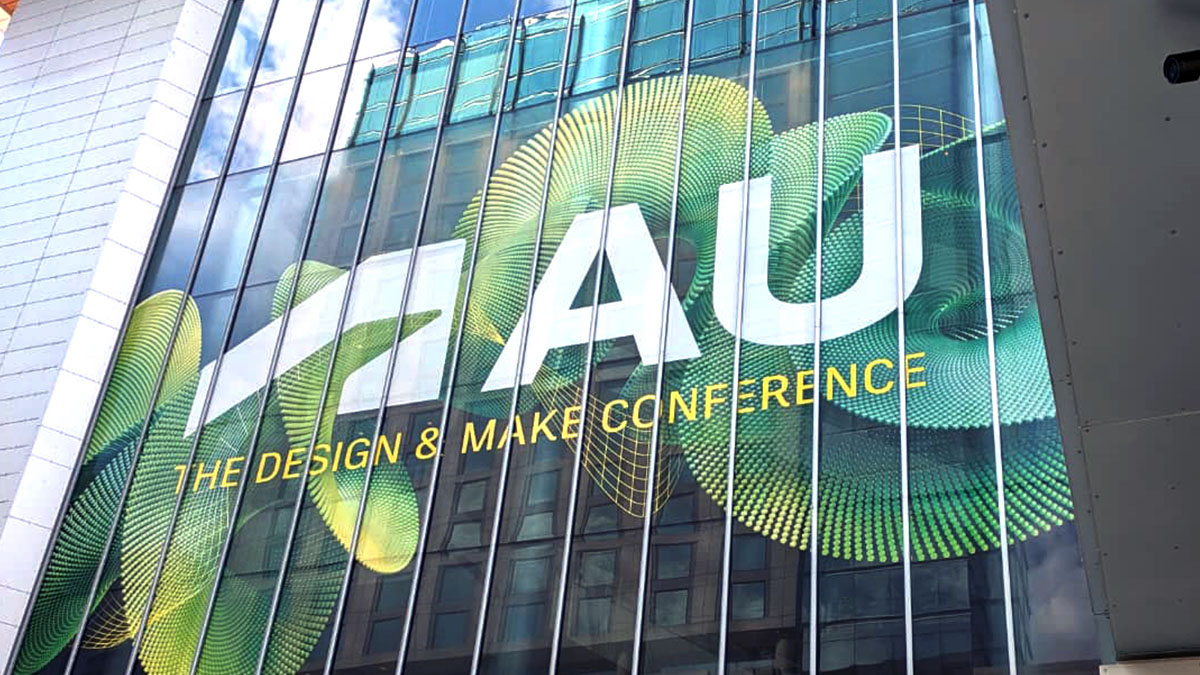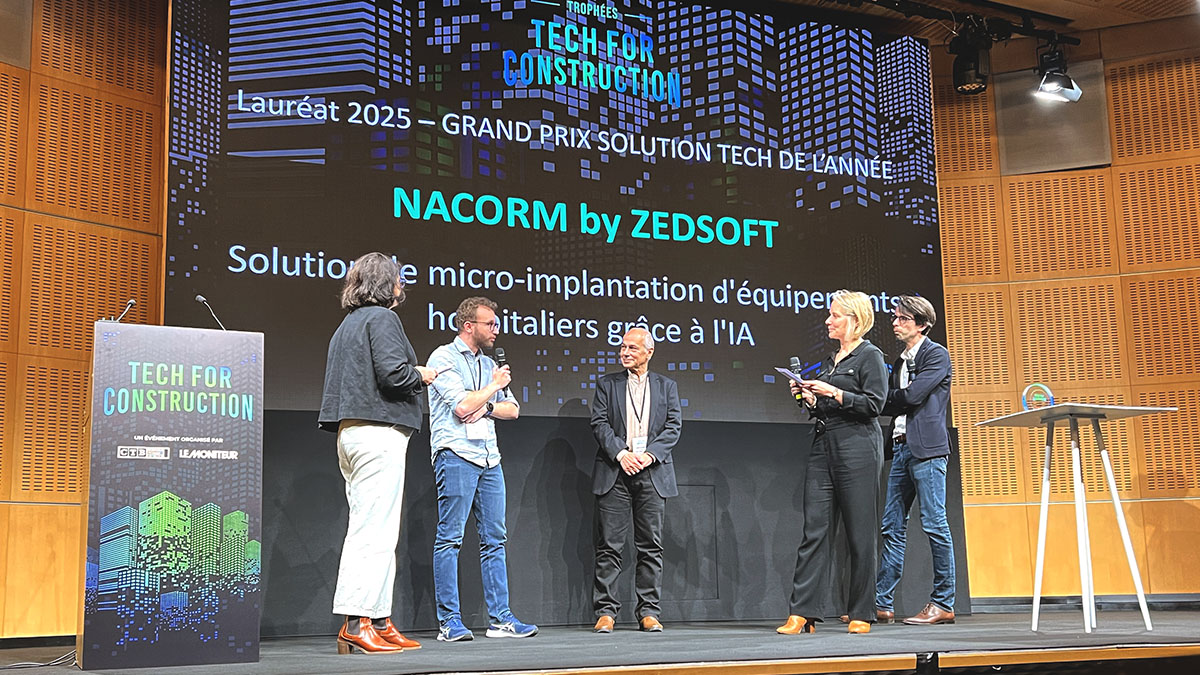At Autodesk University 2025 in Nashville, our CTO Nabil Sadeg shared a comprehensive vision for the future of Artificial Intelligence in the Architecture, Engineering, and Construction (AEC) industry. His session, “From Data to Intelligent Automation: Building Trusted AI Pipelines for Outcome-Based BIM,” explored how to design AI systems that are not only powerful, but also ethical, transparent, and legally robust.
From Hype to Structure: Building AI That Can Be Trusted
Nabil began by addressing a challenge many AEC firms face: enthusiasm for AI often outpaces readiness. Fragmented data, inconsistent standards, and unclear accountability frequently lead to project failures. His message was clear: innovation begins with structure.
He introduced a four-pillar framework that defines what trustworthy AI truly means in practice, built around Data, AI, Ethics, and Legal. Each pillar reinforces the others, forming a continuous, auditable pipeline where quality and accountability are built by design.
Data: The Foundation of Intelligence
The first pillar, Data, underpins everything. Nabil emphasized that “garbage in, garbage out” still applies: poor data means unreliable AI. He explained how AEC professionals must address fragmentation, ensure consistency, and define clear data standards across sources such as BIM, CAD, GIS, LiDAR, and sensor networks.
He also outlined four practical dimensions of data quality: accuracy, consistency, completeness, and accessibility. He showed how to measure and improve each through a structured pipeline of collection, evaluation, structuring, cleaning, and enrichment.
AI: Turning Data into Insight and Action
Once reliable data is in place, AI becomes the intelligence layer that extracts value. Nabil distinguished between traditional algorithms and true artificial intelligence, systems capable of learning and adapting over time.
He explored how AI can emulate human cognitive capabilities in AEC workflows, including computer vision for site monitoring and defect detection, speech recognition and virtual assistants for collaboration, natural language understanding for contract analysis and automated compliance, and robotics and machine learning for predictive design and optimization.
Ethics: Ensuring Fairness, Transparency, and Accountability
For AI to be trusted, ethics cannot be an afterthought. Nabil explained that AI systems inevitably reflect human decisions embedded in their data and objectives. Biases in training data or unbalanced optimization goals can lead to exclusion, unfair outcomes, or even unsafe recommendations.
He presented strategies to detect and mitigate bias using diverse datasets, fairness metrics, explainable AI tools such as LIME or SHAP, and continuous human validation at every stage of the process.
Legal: Designing for Safety, Ownership, and Responsibility
Finally, Nabil addressed the legal foundations of AI in AEC, from data ownership and intellectual property to liability and auditability. Because AI decisions can affect real-world safety and compliance, every project must define who owns data, who validates results, and who bears responsibility for outcomes.
He advocated for protection by design, embedding audit trails, version control, and explainability directly into AI systems. This approach ensures that results remain traceable, defensible, and compliant with evolving regulations.
The Path Forward
Nabil concluded with a clear principle: AI in AEC must be built, not bolted on. Reliable automation comes from disciplined design, where data quality, technical rigor, ethical safeguards, and legal structure work together to produce AI that professionals and society can trust.
You can explore the official Autodesk University session page here:
From Data to Intelligent Automation: Building Trusted AI Pipelines for Outcome-Based BIM
.png?width=2048&height=512&name=Logo_ColorWhiteText_2048%20(1).png)




